What is Italy’s relationship with Russia in general?
Despite the geographical distance between Italy and Russia the two countries have long had a relatively close relationship, with some analysts suggesting Italy is Russia’s “biggest European friend”.
Italy has historically had friendlier ties with Putin than many other Western nations, backed by strong business relationships – primarily investments by Italian corporations in Russia. State-controlled energy group Eni has long-term gas contracts with Russia and agreements with oil group Rosneft, which are on hold.
As the Ukraine crisis deepened, Russian President Vladimir Putin held a video call with heads of major Italian energy firms earlier in February at which he reportedly stressed the importance of their links.
The Italian government deemed the meeting inappropriate and asked energy bosses not to attend, though many still did, including the head of state-backed Italian energy firm Enel.
In the Ukraine crisis of 2014-2015, such corporate ties were a major factor in Rome’s push to prevent tough EU sanctions on Russia under the government of Matteo Renzi.
As well as business links, there have long been close relations between Russia and major political forces in Italy.
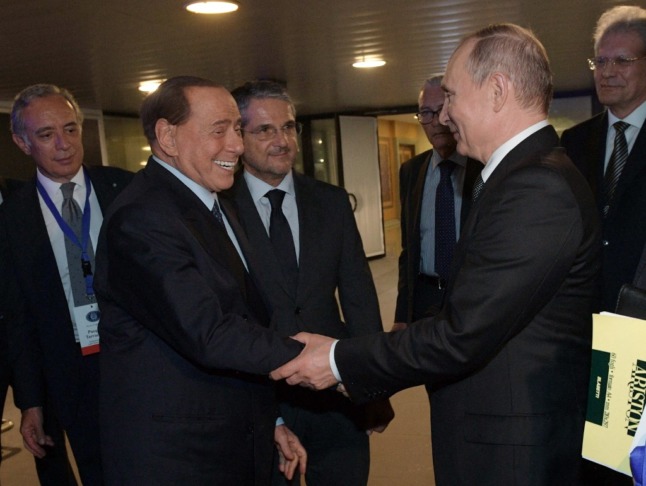
Prominent examples of those ties include the famously close and long-standing friendship between Putin and disgraced former Italian prime minister Silvio Berlusconi, while hard-right League party leader Matteo Salvini has often expressed his admiration of the Russian president and repeatedly called for an end to previous EU sanctions against Moscow.
But political analysts say Italy’s stance on Russia is becoming increasingly aligned with that of Germany and other major EU powers under the current government, since former European Central Bank head Mario Draghi became prime minister in February 2021.
PROFILE: Who is Italian prime minister Mario Draghi?
While Berlusconi, Salvini, and other Italian political forces believed to be sympathetic to Russian interests remain influential as part of Italy’s current broad coalition government, the prime minister himself has repeatedly stressed Italy’s commitments to the EU and NATO.
What has Prime Minister Mario Draghi said?
Draghi immediately condemned Russia’s attack on Ukraine on Thursday morning, describing it as “unjustified and unjustifiable”.
Later on Thursday, Draghi demanded that Russia “withdraw unconditionally” from Ukraine, saying the invasion of the pro-Western nation “concerns all of us, our lives as free people, our democracy”.
He added that Rome was strengthening its “contribution to military deployment in all the most directly exposed Allied countries”.
READ ALSO: Italy condemns Russian invasion of Ukraine and summons ambassador
Draghi has faced criticism in some quarters for appearing lukewarm over Western sanctions against Russia, particularly after he said on Friday that these should not be applied to energy imports.
He was unusually outspoken last month in playing down the risk of a Russian invasion of Ukraine, but he has also made clear that Italy’s place in NATO takes precedence over friendly relations with the Kremlin.
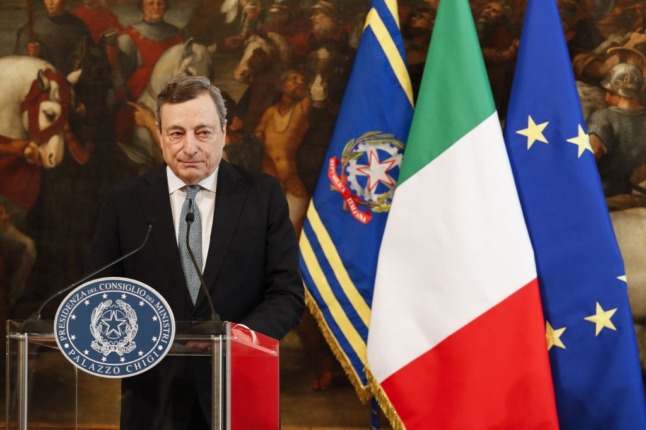
On Thursday, Draghi said Italy was “fully aligned” with its partners and would decide “on a very tough package of sanctions against Russia”, AFP reports.
“We have made it clear in every forum that we are ready to impose severe consequences if Russia…rejects our attempts to resolve the crisis through political means. Now is the time to apply them.”
Rome would “do whatever it takes to preserve Ukraine’s sovereignty, Europe’s security, and the integrity of the international order based on the rules and values we all share,” he said.
How will Italy’s economy be impacted?
Gas prices are the most obvious cause for concern in a country as heavily reliant on imports as Italy.
Italy is more dependent on natural gas for energy than most of its European neighbours and imports 90 percent of its gas supply, according to Reuters, with Russia supplying around 40 percent.
Un'infografica molto eloquete sulla dipendenza europea dal gas russo, dove e quanto. pic.twitter.com/yIK43H8sPN
— Riccardo Pennisi (@RiccardoPennisi) February 24, 2022
As in the rest of Europe, consumers and businesses in Italy are already struggling with the rising cost of energy after a series of sharp price hikes over the past year, fuelled by the surging price of natural gas.
Analysts point out however that the cost of energy will be less of a concern in Europe as it heads into the summer months. If conflict continues into the winter, the scenario may be different.
READ ALSO: How will the Russian invasion affect Italy’s gas supplies and prices?
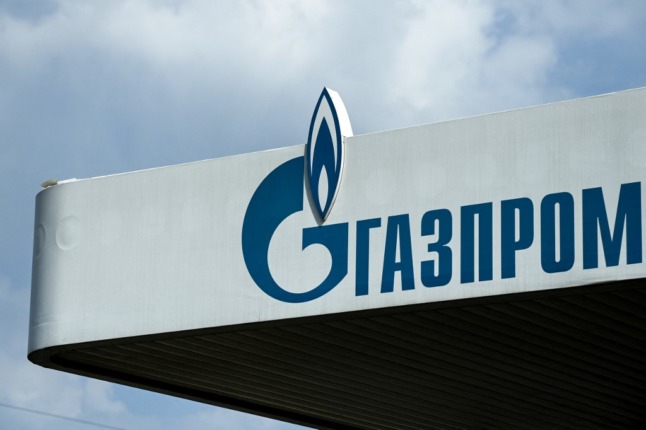
Food prices are also likely to be affected in Italy, which imports a majority of its wheat and corn.
“The war is aggravating the problems of the national agricultural sector, which is already suffering from the effects of price volatility,” the Coldiretti agricultural association stated on Thursday.
Agricultural commodities are usually much less volatile than stocks or oil, but have recently seen spectacular spikes and drops provoked by Russia’s looming invasion of Ukraine.
The stakes are especially high for wheat, with Russia being the world’s top exporter and Ukraine the fourth according to estimates by the US Department of Agriculture (USDA).
But the consequences for agricultural markets of Russia’s invasion of Ukraine on Thursday are still difficult to predict.
“It is totally unprecedented,” Sebastien Poncelet, an analyst with the French consultancy Agritel, told AFP.
“When we see that there are explosions in Odessa, which is the main Ukrainian port, we must assume there will not be much grain loaded there today,” he said.

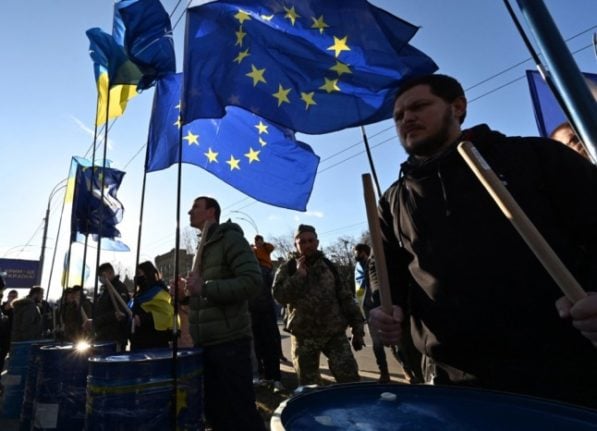
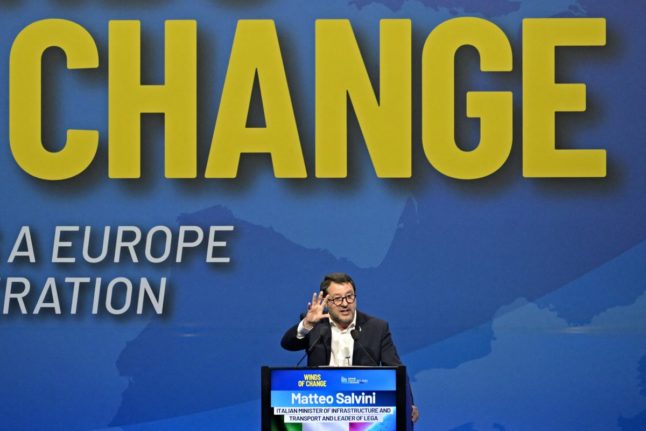
 Please whitelist us to continue reading.
Please whitelist us to continue reading.
Member comments